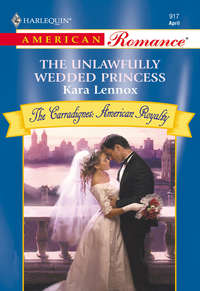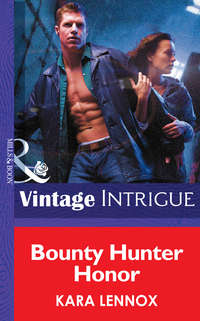
Полная версия
Taken to the Edge

His touch felt way too good
“I’m okay now.” Robyn didn’t let go of his hand. She felt Ford slide across the big bench seat toward her. He slid one arm around her shoulders, and for a moment she thought he’d take her in his arms and kiss her. She kind of hoped he would.
She wanted his kiss more than oxygen.
It should have felt awkward as hell, but instead it felt like the exact right thing to do. She’d seen those old movie clichés of fireworks and waves crashing against rocks, but this was the first time she’d understood what those analogies meant.
Oh, God, he smelled good. The smell of his skin was intoxicating.
When his mouth finally made contact with hers, it was a sweet kiss, a gentle kiss, and Robyn didn’t want it to end. She wished she could bottle the way she felt right now, all tingly and warm and strangely right with the world.
Ford slid across the seat, resuming his spot behind the wheel. “I’ve wanted to do that ever since high school.”
Dear Reader,
Many years ago, I became fascinated by a news report about the Innocence Project, an organization dedicated to exonerating wrongly convicted people through the use of DNA testing. For years I’ve been mulling over the idea of creating a series of books about a similar organization. But the foundation I envisioned would use all sorts of methods for proving innocence—including a team of crack investigators, lawyers, evidence analysts and even computer hackers.
That’s how my fictional Project Justice was born. For the record, Project Justice is inspired by, but not based on, the Innocence Project. I designed my foundation not as a factually accurate portrayal of such an organization, but to maximize dramatic possibilities, for this and future books.
Taken to the Edge involves a lying eyewitness, a sloppy police investigation and advanced scientific analysis of physical evidence—all of which have been used in real cases to overturn convictions. Of course, the most important aspects of my story are the human ones, the personalities, motivations and emotions of the people involved.
As of this writing, there are dozens of “innocence organizations” in this country and around the world, working to help those the justice system itself has wronged. I applaud their courageous efforts.
Sincerely,
Kara Lennox
Taken to the Edge
Kara Lennox

MILLS & BOON
Before you start reading, why not sign up?
Thank you for downloading this Mills & Boon book. If you want to hear about exclusive discounts, special offers and competitions, sign up to our email newsletter today!
SIGN ME UP!
Or simply visit
signup.millsandboon.co.uk
Mills & Boon emails are completely free to receive and you can unsubscribe at any time via the link in any email we send you.
ABOUT THE AUTHOR
Kara Lennox has earned her living at various times as an art director, typesetter, textbook editor and reporter. She’s worked in a boutique, a health club and an ad agency. She’s been an antiques dealer, an artist and even a blackjack dealer. But no work has ever made her happier than writing romance novels. She has written more than sixty books.
Kara is a recent transplant to Southern California. When not writing, she indulges in an ever-changing array of hobbies. Her latest passions are bird-watching, long-distance bicycling, vintage jewelry and, by necessity, do-it-yourself home renovation. She loves to hear from readers; you can find her at www.karalennox.com.
For my tireless editor, Johanna Raisanen, who took the time and made the effort to figure out where I belong in the large spectrum of Harlequin Publishing. Johanna, your encouragement and enthusiasm mean so much.
CONTENTS
CHAPTER ONE
CHAPTER TWO
CHAPTER THREE
CHAPTER FOUR
CHAPTER FIVE
CHAPTER SIX
CHAPTER SEVEN
CHAPTER EIGHT
CHAPTER NINE
CHAPTER TEN
CHAPTER ELEVEN
CHAPTER TWELVE
CHAPTER THIRTEEN
CHAPTER FOURTEEN
CHAPTER FIFTEEN
CHAPTER SIXTEEN
CHAPTER ONE
IF ONE WILD TURKEY ON ICE didn’t make the pain go away, maybe two would. That was Ford Hyatt’s thinking when he’d ordered a second drink even though he needed to drive home. But two didn’t work, either, and now he’d have to sit in this damn ugly bar for at least two hours while he sobered up.
This never worked. He just wasn’t a drown-your-sorrows kind of guy. He was more of a go-fix-what’s-wrong kind of guy, except there was no way to fix this, no arguing with the fact that a woman was in intensive care, and it was Ford’s fault.
His supposedly infallible instincts had failed him. Again.
“Another?” The bartender nodded toward Ford’s empty glass.
“Sure.” Hell, why not? In for a penny and all that. He could take a cab home.
He first became aware of the woman on the bar stool next to him when he smelled her perfume, a light, teasing scent. He looked over, surprised to find her there. She’d slid onto that stool as noiselessly as a cat.
“Need someone to drown your sorrows with?” she asked.
How had she known? Maybe it was just a lucky guess. Guy drinking alone in a bar must have some sorrows.
“I don’t need company, thanks,” he said. Or, more accurately, he doubted she would want his company inflicted on her. Under other circumstances, he might have responded to the flirtation. He gave her a second look from the corner of his eye. She was tall and long-legged, and dressed too nice for this dive. The fact she was hanging out alone at McGoo’s meant he could probably have gotten her into bed without too much effort.
But the easy conquests of his youth held little appeal these days. Anyway, he was in a helluva mood. Being nice, even civil, would require too much effort.
She ordered her own drink, a diet cola, which made the bartender’s grizzled eyebrows rise in surprise. Ford was amazed the bar stocked diet anything.
He gave the woman a third look—and realized he knew her. He hadn’t seen her in well over a decade, and she’d changed quite a bit, filled out, darkened her hair a shade. But her eyes were the same, big and blue and innocent—deceptively so, some had said.
“Robyn?” He would probably regret starting a conversation. But he had to say something.
“I wondered if you’d recognize me. It’s been a long time.” No smile, but why should there be? Their history wasn’t exactly warm and fuzzy.
“You obviously recognized me,” he said, wondering why she would even bother acknowledging him.
“I heard you hang out here sometimes. Your number’s not in the book and no one would give it to me.”
“Cops seldom list their numbers.” God only knew how many wackos he’d arrested who’d love to find him, get a piece of him.
“Ex-cop now, isn’t it?”
He nodded. “I left the Houston P.D. a couple of years ago.”
“Why’d you leave?” The question sounded impulsive. “I mean, you were good at your job.”
“Says who?”
“Well…everyone.”
“You’ve been asking?”
“It’s come up in conversation.” She paused to take a sip of her drink, and Ford found his gaze drawn to her lips pursing around the straw.
Idiot. Yeah, so he’d found her hot in high school. The bad girl, forbidden fruit. Always in trouble. Not someone he would have gotten involved with. But that hadn’t stopped him from getting a hard-on every time he saw her. Stupid how powerful adolescent memories were. He could suddenly remember every nuance of what it had been like for him back then, wanting something he knew would be bad for him, something that didn’t fit in with his ironclad plans for the future. Doing the right thing, but wishing he didn’t have to.
He took a gulp of his drink. “Any particular reason people have been talking about me?” he asked.
“Yes.”
The single word hung in the air, and he knew for sure that this was no chance encounter, not just curiosity on her part. She’d come here looking for him, and she had an agenda.
“I assume you know about me, right?” she asked, her gaze not meeting his. “You heard what happened?”
Had anyone in Harris County missed hearing about the tragedy that had struck Robyn Jasperson’s life? If they had, they’d been living under a rock. “Yes. I’m sorry.” He didn’t know what else to say. Stupid sentiment. Meaningless. But what could you say to a woman whose child had disappeared and was presumed dead? Nothing anyone said could make it better.
“Thank you.” The rejoinder was automatic, probably uttered thousands of times since the tragedy—what, seven or eight years ago? At least they’d caught the bastard who did it…
That was when a disturbing possibility occurred to him. Oh, surely not. But the silence between them stretched uncomfortably.
He looked at her, and she met his probing gaze unflinchingly.
“Do you know why I wanted to speak to you?”
“I’m slow, but I’m starting to get an idea.”
“You’re not slow. In fact, most people agree that you are extraordinarily intelligent.”
“You don’t think Eldon did it?” he asked, incredulous. The D.A.’s case against Eldon Jasperson had been circumstantial, but it had been convincing—convincing enough for twelve jurors.
“No,” Robyn said succinctly. “I do not believe my ex-husband murdered my son.”
Without comment, Ford settled his bill and paid for Robyn’s soft drink, too. “Let’s walk outside.” The stale-beer smell inside McGoo’s suddenly turned his stomach. Maybe it was just that he didn’t think some one as pretty and delicate looking as Robyn belonged in a place like this. McGoo’s was close enough to the Houston shipping lanes that it attracted a rough clientele.
Outside, the air could hardly be called fresh. Summer in South Texas was never fresh, but the ninety-degree heat from earlier that afternoon had abated to a tolerable eighty or so, muggy as hell but not so bad that your clothes became drenched the moment you stepped outside.
A worn footpath ran alongside the twisty road where the bar was located. Without asking her permission, he led Robyn there. They could talk with out being overheard. He realized too late she wasn’t wearing good walking shoes, just some teeny blue sandals with her jeans and silk T-shirt, but she didn’t complain.
“Why do you think that Eldon is innocent?” he asked point-blank. Project Justice, the charitable foundation he had worked for—until this afternoon—took on only cases with significant evidence to work with. The mere belief that someone was innocent, no matter how passionate, was not enough to get Project Justice to take on a case. There had to be new evidence, or perhaps a new way of scientifically testing old evidence, to meet the foundation’s criteria.
“I have three things,” Robyn said. Clearly she had prepared for this meeting. “First, a witness saw Eldon with Justin at the pizza parlor where he said Justin was taken from. Because the witness had drunk a beer—one beer—and hadn’t gotten every detail exactly right, the police dismissed him as a crank and never even provided his name to the defense. But you, as a former cop, know that memory is imperfect at best.”
“That’s a good point,” he said. “Any reason this witness wasn’t mentioned during Eldon’s appeals?”
“We’ve only just found him,” Robyn said.
“We?” Ford’s ears perked up. He wondered whom she was working with. “Are you teamed up with Eldon’s lawyer?”
“Frankly, I have no money to pay a lawyer. ‘We’ is myself and Trina Jasperson.”
“Trina—” It took a few moments for Ford to get it. “Eldon’s current wife?”
“The one who broke up my marriage, yes.” Robyn misstepped, and Ford grabbed her arm to keep her from falling.
“Maybe we should turn back,” he said. “I didn’t realize the footing was so bad on this path.” The mosquitoes were out, too. He waved away a couple that buzzed around his face.
“It’s okay. Let’s keep going.”
She probably wanted to prolong their meeting as long as possible to prevent him from walking away.
He took her arm again and firmly turned her around. “I won’t be responsible for you breaking your ankle. Don’t worry, I intend to hear you out. You’ve piqued my curiosity.” Robyn and Trina, allies? Ford knew Trina Jasperson only by reputation, but that wasn’t good. She’d been a party girl—possibly a call girl—before Eldon married her. “Frankly, I’m surprised Trina has stuck by him. She could have divorced him, gotten a huge settlement and moved on.”
“Not all women who marry rich men do so for the money,” Robyn said indignantly. “I didn’t.”
“Why did you marry Eldon?” Ford asked, then wished he hadn’t. That hardly had any bearing on the case, and it was none of his business. But a detective never loses his strong sense of curiosity. Had she sought respectability? A stable environment to raise children? Was it just the money?
“Hard as it is to believe, I loved him. He saw things about me that others missed, saw good qualities in me that I didn’t even know were there. He was good to me—well, to a point.”
She sounded comfortable with that answer—as if she’d defended her position many times. “Sorry. That was a rude question for me to ask.”
“I’ll answer any question you ask—anything—if it’ll help you free Eldon. He was hideously unfaithful, a serial cheater—that’s one of the things the prosecution used to tear down his character. But he was a terrific father, utterly devoted to Justin, and I love him for that. He grieved for his son, all the while having to go through that investigation, incarceration, the trial. To the public he looked stoic, perhaps even cold, but I knew him in a way most didn’t, and he was devastated by the loss of his son.”
Ford knew that even murderers sometimes grieved for their victims. “Is that point number two?”
“I’m sorry?”
“You said you had three reasons you believed Eldon is innocent. The first was the witness at the pizza parlor. Is the second the fact that Eldon grieved for Justin?”
“Oh. No, I understood Project Justice wanted facts, evidence, not feelings. I was just answering your question.”
“What are the other two points?”
Her heel caught on a rock and she stumbled again. This time she was the one who reached out for his arm to keep from falling. When she’d righted herself, she started to release him, but he grasped her hand and wrapped it around his bare forearm. “Maybe you better hold on till we get back to the parking lot.”
She didn’t argue, and for the next couple of minutes, Ford found himself annoyed that he could not stop focusing on the feel of her warm, soft hand against his arm. How many times in high school had he vividly imagined sex with her? Yet he’d never thought about the experience of holding her hand, or listening to her talk, or the faint scent of that light, teasing perfume.
“The second point I would like to bring up is the wig fiber,” she said, sounding more like an attorney than a…he didn’t know what she was now, other than I rich man’s ex-wife. “The cops combed Eldon’s car bit by bit, and they found one lone fiber that didn’t belong—a blond, synthetic wig fiber. They claimed it was insignificant, but I can’t think of a single person Eldon or Justin came in contact with who wore a blond wig.”
Ford loved fiber evidence. In years past, forensic scientists could declare one synthetic fiber “consistent with” another. But as testing became more sophisticated, precise matches were more commonplace, particularly with something like a wig fiber. That was something he could sink his teeth into. “I like it,” he said. “But as I recall, the cops found blood evidence in Eldon’s car, too.”
“A few tiny drops. Justin frequently had nose-bleeds.”
“Okay. What’s your third point?”
Robyn took a deep breath. “I believe Eldon was with someone that night, someone who could clear him. I know there’s something he’s holding back. There’s a certain look he gets in his eyes when he’s lying…about a woman.”
Ford couldn’t think what to reply to that. He had a healthy respect for a woman’s instincts, but this was hardly hard evidence.
“I know what you’re thinking,” she rushed on to say. “But if I could just talk to him, I could convince him to come clean.”
“You haven’t talked to him?”
“They won’t let me. And Trina—she knows nothing about the woman and I’ve hesitated to say anything to her. I don’t want to be the one to tell her Eldon was cheating.”
“I could probably get you an interview with Eldon,” Ford found himself saying. The Project Justice lawyers were experts at negotiating prison regulations. “But why in hell didn’t he speak up about this woman, if she exists?”
“He must have a reason. But I’m positive she exists.” Robyn sounded like she was trying to keep the edge of desperation out of her voice.
“Maybe she’s the one with the wig,” Ford said.
“Exactly!” Right about then, Robyn realized she was still holding on to Ford’s arm, and she pulled her hand back self-consciously. She wiped her damp palm on the leg of her jeans. “I’m sorry. I forgot I was holding on to you like that.”
He hadn’t forgotten. He still felt the ghost of her touch, like a brand on his forearm. “It’s okay.” He opened his mouth to tell her she could touch him any old time, then thought better of it. She’d come to him in a desperate frame of mind, and he would be lower than slime to take advantage of that.
“Robyn, it sounds like you’ve got some sound reasons for reopening the case. Have you talked to the original investigators? The District Attorney who tried the case?”
“Yes on both counts. They’re like brick walls. Maybe you’ve never noticed this, but cops and D.A.’s don’t like to admit they made a mistake. They particularly don’t like to admit they sent an innocent man to death row. No matter what I hit them with, I get the same company line.”
“‘We’re positive the right man is behind bars’?” He’d uttered that one once or twice himself when he was on the other side of the fence, and at the time he’d meant it.
“That’s the one.”
He’d once been that arrogant, believed himself infallible. He was a smart cop, everyone said so. Careful, conscientious. And still, he’d helped send an innocent man to prison—then, two years later, freed a guilty one.
He refused to make any more mistakes.
“I suggest you submit Eldon’s case through the normal channels at Project Justice,” Ford said. “I’ll put in a good word for it.”
“I’ve already done that.”
Then why was she talking to him? Before he could voice the question, she answered it.
“The application process can take months. Do you know the date of Eldon’s execution?”
It wasn’t something Ford kept up with. “I’m afraid I don’t.”
“July 18. Exactly two weeks and one day from today. He’s running out of time, and you’re his only hope.”
“Ah, hell.” If Ford hadn’t been sober before leaving the bar, he was now. He walked back toward his big Crown Victoria—the same type of car he’d driven as a cop, purchased at a police auction. Old habits die hard. “You’re not making this easy, you know.”
“I didn’t intend to make it easy. An innocent man’s life is at stake.”
“Robyn, I no longer work for Project Justice.”
Her eyes widened in shock. “What? Since when?”
“Since this afternoon. I quit. But I could try to get Eldon’s case at the top of the pile—”
She shook her head. “I want you to handle it.”
“I can’t.”
“Why not? I don’t understand.”
He wasn’t going to explain it, either. But when he’d seen Katherine Hannigan lying in that hospital bed, literally black-and-blue, nearly murdered by a man Ford had helped to free, something had clicked inside his brain. He wasn’t going to take people’s lives into his hands anymore.
“I’ll plead your case tomorrow morning, first thing,” he said. “Give me your number. Someone will contact you within forty-eight hours.”
“I want you to handle it.”
In her chin-forward, clench-fisted stance, he caught a glimpse of that belligerent girl he’d known in school, the one who had so steadfastly maintained her innocence when she’d been accused of a theft.
The one he’d wanted to believe.
“Why me?” he wanted to know. “I thought you hated me.”
She flashed him the ghost of a smile, then sobered. My personal feelings for you are irrelevant. I know you’re determined. I know when you get a case in your teeth, you don’t let it go. And after years of being lied to by lawyers and scammed by private investigators, after having cops and D.A.s cover their butts rather than get at the truth, I want someone on my team who will work hard, stay the course. You’re the ideal candidate.”
Ford could hardly believe his ears. Why would Robyn Jasperson put so much faith in him? “How do you know that about me?”
“I pay attention.”
They stared at each other, sizing up each other’s resolve in the dimly lit parking lot as rowdy music from the bar’s jukebox drifted out each time the front door opened.
“I’ve changed,” he said softly, looking away.
“People don’t change that much. Can you really walk away from a man who’s going to die by lethal injection in little more than two weeks? If there’s even a chance he’s innocent?”
Damn it. He couldn’t. He wasn’t sure how she knew that about him, but she did.
“I’ll think about it.” He wouldn’t make a promise he couldn’t keep.
FORD DIDN’T TRUST MANY people, but Daniel Logan was someone he did.
Daniel had no training as either a lawyer or a cop. But six years in federal prison maneuvering through the ins and outs of his various appeals had provided him quite an education.
With the help of his billionaire father, Daniel eventually had found a way to prove he was innocent of his business partner’s grisly murder.
Given his freedom and a full pardon, Daniel had wanted nothing more than to help others who didn’t belong in jail. Thus Project Justice was born. His father had financed the foundation and Daniel ran it, though the employees rarely saw him.
“I never liked the looks of that Jasperson case,” Daniel said after Ford had spent all day reading the trial transcript, then presenting his evidence to Daniel. They were in Daniel’s study at his River Oaks mansion, which looked like NASA’s ground control, given all the computers and research paraphernalia.
Daniel, tall and lean with a world-weary look that made him seem older than his thirty-six years, sat behind one of those computers rapidly tapping at the keys as he spoke. “The death of a child brings out the best and the worst in people. In this case, the people wanted blood. The cops and the D.A. gave it to them.”
“The case was badly mishandled from the beginning.” Ford sat in a leather wingback chair, Daniel’s one concession to comfort in his high-tech lair. “A guy like Jasperson could have afforded the best lawyer in the country, and he chose some school buddy who couldn’t tell his ear from a leaf of cabbage.”
“Jasperson was an arrogant idiot. He wasn’t worried enough to hire the best. He was so sure he would beat the charge—maybe because he was innocent. Maybe because he thought he was clever.”
“I can’t help thinking that if he were clever, he’d have done a better job staging a crime.” Once Ford had started checking things out, he felt his blood thrumming. He loved the challenge of a complex case, ferreting out the tiny points of illogic, the in consistencies everyone else overlooked.
“You know as well as I that intelligent people do stupid, stupid things, especially in the heat of the moment.”











